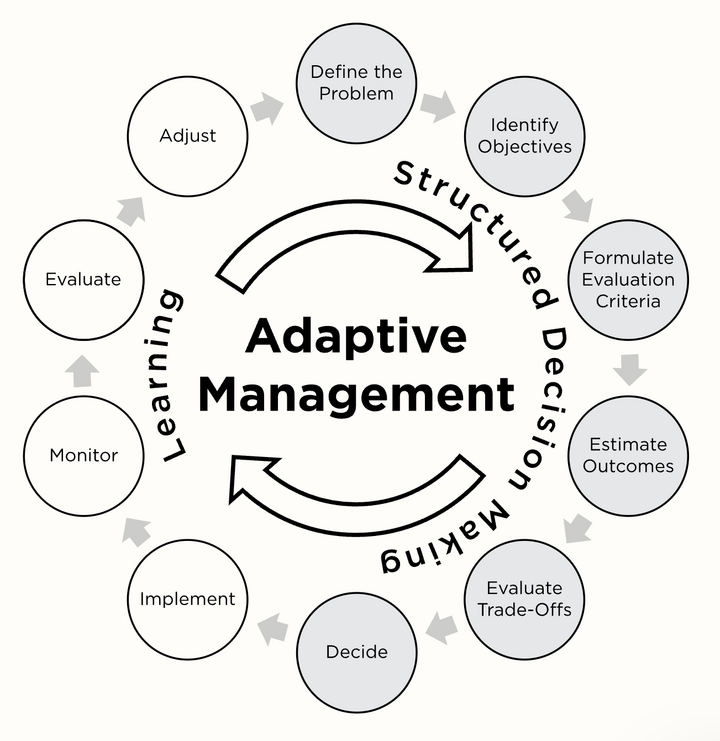
About Collaborative Adaptive Management
Collaborative adaptive management (CAM) is an approach with aims of addressing key uncertainties related to grassland management. CAM is unique in that it focuses on evaluating stakeholder-designed experiments to improve rangeland conditions. However, it also provides additional continuity as stakeholders in agriculture, land management and natural resource science collaborate in the landscape in real time.
Although CAM seems straightforward, some confusion remains about what CAM is. This stems from the belief that CAM is what management has always been: trial-and-error attempts to improve practices. However, unlike a trial-and-error approach, CAM emphasizes the careful description of objectives, possible reasons for causation, alternative management approaches, data collection and analysis, and a way to update management as learning occurs.
The relevancy of this process to rangeland systems helped usher in the formation of the CAM Project at Barta Brothers Ranch in 2020. This collaboration allows for high-risk management experiments, the monitoring of ecosystem services and disservices, and economic analysis of the various activities at the ranch. In the spring of 2022, the first phase of implementation began with a 150-acre prescribed burn in an experimental pasture. Data collection and monitoring of livestock, forage quality and availability, soil health, erosion, and plant and animal diversity will continue throughout the growing season to help stakeholders evaluate the treatment's effectiveness.
CAM, for its part, allows researchers and stakeholders to continue managing the landscape while exploring the resilience of rangeland systems. A principal outcome of CAM is to reduce future uncertainty while increasing the understanding of the landscape.

Funding Acknowledgments
The Barta Brothers Ranch Collaborative Adaptive Management project is partially funded through a grant from the Nebraska Environmental Trust. The trust is funded by proceeds from the Nebraska Lottery and has awarded more than $178 million to more than 1,300 conservation projects across the state of Nebraska since 1994.
This material is also based upon work that is supported by the National Institute of Food and Agriculture, U.S. Department of Agriculture, under agreement number 2019-38640-29879 and through the North Central Region SARE program under project number GNC20-307. Any opinions, findings, conclusions or recommendations expressed on this website are those of the author(s) and do not necessarily reflect the view of the U.S. Department of Agriculture.
